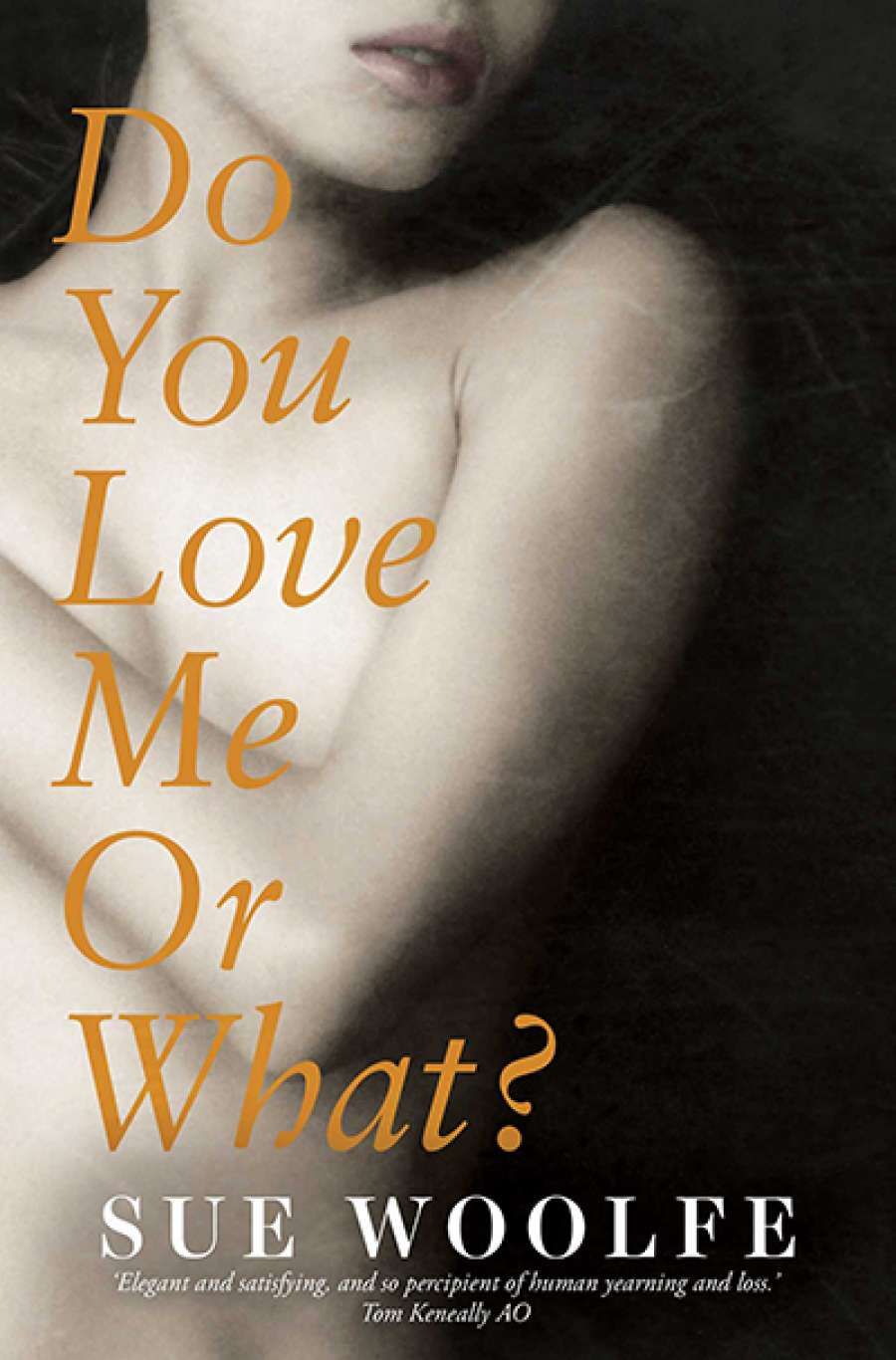
- Free Article: No
- Contents Category: Fiction
- Custom Article Title: Jane Sullivan reviews 'Do You Love Me Or What?' by Sue Woolfe
- Book 1 Title: Do You Love Me Or What?
- Book 1 Biblio: Simon & Schuster $29.99 hb, 240 pp, 9781925533286
Some of the women’s stories deal with friendship (‘the achingly pretty her’ who seems more like a rival); a beloved but mysterious father; a pregnancy and an old betrayal; and a famous writer’s account of her under-confident youth, framed by footnotes from a snarky editor. As the title suggests, love is longed for, but not always trusted. Place is used to evoke mood, and there is much use of the pathetic fallacy, where even coat hangers have feelings. All these women experience themselves as misfits. They struggle with shame, a sense of rejection, and suppressed anger. Finding yourself is clearly a painful path.
Perhaps the most appealing and poignant story, ‘Her Laughter Like A Song of Freedom’, is not about a woman at all. Gerard has learned early in life to eke out things. He is an innocent soul, reminiscent of Don in Graeme Simsion’s The Rosie Project (2013) although Gerard was created long before that book existed, and his history is a much darker tale, without Simsion’s populist feel-good factor – which makes it to my mind a better story.
Gerard was recycled into Owen, a character in Woolfe’s novel The Secret Cure (2003), and indeed several of these stories hold echoes of her other work: there is a little bit of her novel The Oldest Song in the World (2012) in both the title story and more specifically in ‘Small Talk’, where an eager but naïve and ill-informed young woman goes into the desert to locate the Indigenous women and to have a conversation with them. Against the odds, it is a funny and hopeful encounter.
N Sue Woolfeo doubt these recurring themes reflect the experiences or preoccupations of the author, but she tells us the only autobiographical story is ‘Passport’, which began life as a short memoir but was almost entirely rewritten to include later information that solved a family mystery. Oddly enough, it is the least successful of these stories: the mystery solution, true as it might be, feels too contrived and tacked-on to work as fiction.
Sue Woolfeo doubt these recurring themes reflect the experiences or preoccupations of the author, but she tells us the only autobiographical story is ‘Passport’, which began life as a short memoir but was almost entirely rewritten to include later information that solved a family mystery. Oddly enough, it is the least successful of these stories: the mystery solution, true as it might be, feels too contrived and tacked-on to work as fiction.
Woolfe implies she keeps picking away at these texts before and sometimes long after publication. ‘It’s taken years for me to find the story’s heart,’ she writes of one, ‘The Last Taxi Ride From Home’. Heart for the writer and heart for the reader can be different things: my abiding impression of this tale of an Australian woman’s unsatisfying but apparently necessary affair in Florence is of her lover’s ‘palely lidded orange eyes – I’d seen those pale eyelids without eyelashes a hundred times in medieval paintings’. What a masterstroke: I know at once how beautiful and how creepy this man is.
So, Woolfe’s stories may be works in progress, trying to find themselves, which may be why they do not always linger in the memory. The one I remember most vividly is my favourite in this collection, ‘The Dancer Talks’. Here is a finished story, about Magdalena, a shy and self-effacing tango dancer who might be going blind. Slightly outlandish metaphors quiver on the edge of absurdity, just as Magdalena appears to quiver on the edge of falling in the dance; but Woolfe pulls it off, with subtle distinctions between the tango dancers and the way they approach their art and each other. There is a gathering tension, fuelled by Magdalena’s failing eyesight and her constant feeling that heavily winged archangels are thundering down to banish her from the earth. Sometimes they wear hobnailed boots. There is an angel’s wing in ‘The Last Taxi Ride From Home’, but it is a laboured thing compared to these splendid beings, God’s bovver boys, and Woolfe’s final sentence, which changes point of view three times, is another masterstroke.


Comments powered by CComment